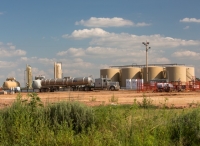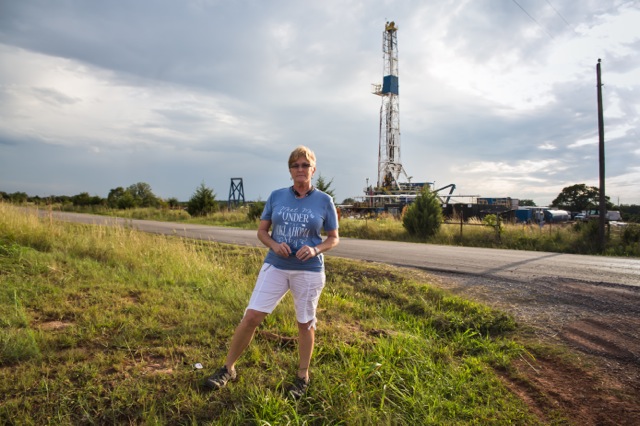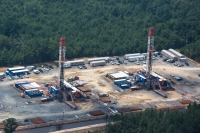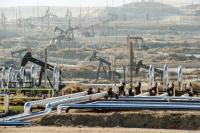On November 4, Denton, Texas, became the first city in the state to ban the process of hydraulic fracturing (“fracking”) when 59 percent of voters cast ballots in favor of the initiative. It did so in the heart of the Barnett Shale basin, where George Mitchell — the “father of fracking” — drilled the first sample wells for his company Mitchell Energy.
As promised by the oil and gas industry and by Texas Railroad Commission commissioner David Porter, the vote was met with immediate legal backlash. Both the Texas General Land Office and the Texas Oil and Gas Association (TXOGA) filed lawsuits in Texas courts within roughly 12 hours of the vote taking place, the latest actions in the aggressive months-long campaign by the industry and the Texas state government to fend off the ban.
The Land Office and TXOGA lawsuits, besides making similar legal arguments about state law preempting local law under the Texas Constitution, share something else in common: ties to former President George W. Bush and the Bush family at large.
In the Land Office legal case, though current land commissioner Jerry Patterson signed off on the lawsuit, he will soon depart from office. And George Prescott Bush — son of former Florida Governor and prospective 2016 Republican Party presidential nominee Jeb Bush and nephew of former President George W. Bush — will take his place.
George P. Bush won his land commissioner race in a landslide, gaining 61 percent of the vote. Given the cumbersome and lengthy nature of litigation in the U.S., it appears the Land Office case will have only just begun by the time Bush assumes the office.
The TXOGA legal complaint was filed by a powerful team of attorneys working at the firm Baker Botts, the international law firm named after the familial descendants of James A. Baker III, a partner at the firm.
Baker III served as chief-of-staff under both President Ronald Reagan and President George H.W. Bush, Secretary of State under George H.W. Bush and as a close advisor to President George W. Bush on the U.S. occupation of Iraq. He gave George P. Bush a $10,000 donation for his campaign for his race for land commissioner.

Photo Credit: Texas Land Commission
The Energy Policy Act of 2005, which exempts the oil and gas industry from the Safe Drinking Water Act, the Clean Water Act and the National Environmental Policy Act for fracking, is seen by critics as the legacy of ashes left behind by the George W. Bush Administration.
Yet almost a decade later, the two lawsuits filed against Denton show the Bush oil and gas legacy clearly lives on and stretches from the state where the fracking industry was born all the way to Iraq and back again.





























